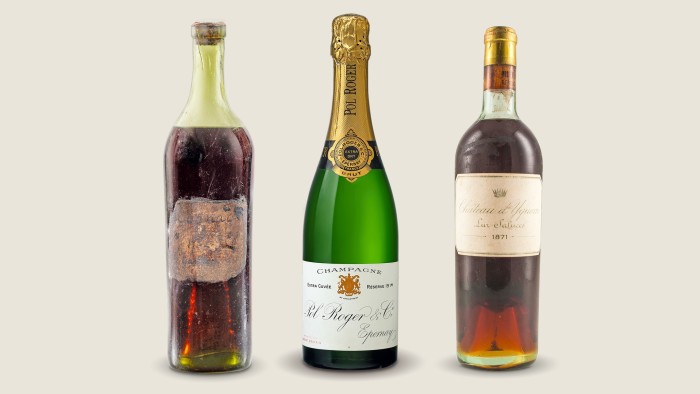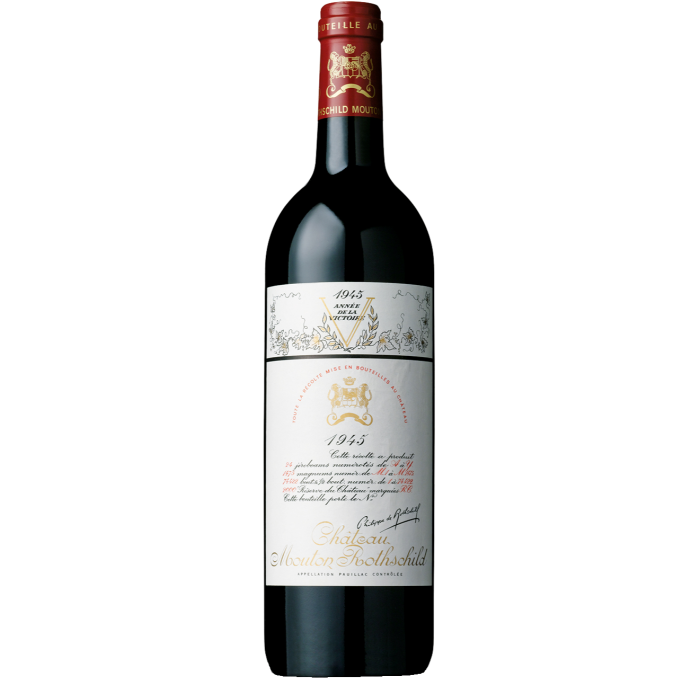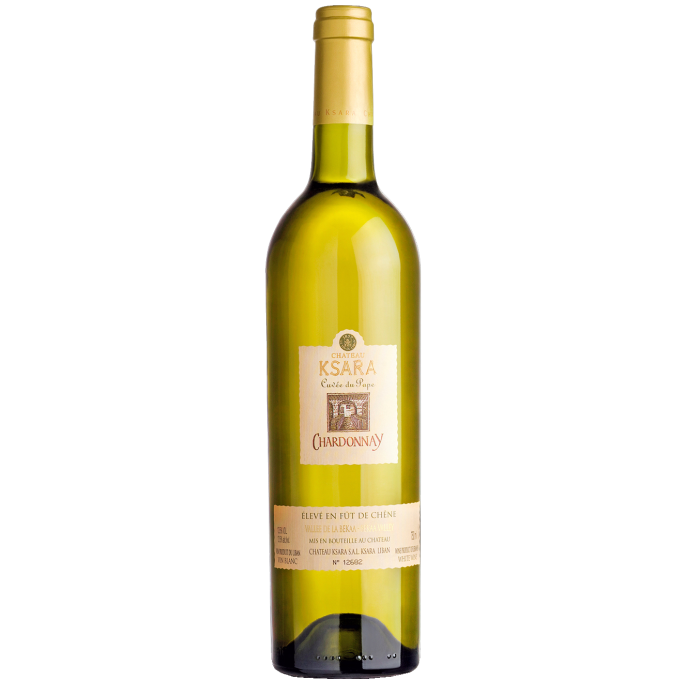Five vintages that sing of survival

Roula Khalaf, Editor of the FT, selects her favourite stories in this weekly newsletter.
1762 Gautier Cognac
Distilled during the Seven Years’ War by the renowned company Cognac Gautier, this is the oldest surviving cognac in the world. One of the three remaining bottles will be auctioned at Sotheby’s Finest & Rarest Sale of spirits and wines on 16 May, with an estimate of £80,000-£160,000. The liquid is almost certainly past its best – but still a fascinating piece of history.
1871 Château d’Yquem
A rare bottle of Château d’Yquem made with grapes that weathered the Franco-Prussian war. Time has turned it from rich gold to deep amber. Priced at £32,888.80, it’s one of a range of war-time wines and spirits at Hedonism that also includes Napoleonic cognacs and Crimean wines from the second world war.
1914 Pol Roger
Champagne was the setting for some of the bloodiest conflicts of the first world war, including the 1914 Battle of the Marne. Despite this, the 1914 vintage – picked by the children and wives of soldiers – turned out to be one of the greatest vintages of the 20th century. In 1944, Winston Churchill chose Pol Roger 1914 to toast the liberation of Paris.

1945 Mouton Rothschild
1945 marked the end of the second world war, and also, as it happens, a superb vintage for Bordeaux. The celebratory label – which bears a “V” for victory – also marks the first in Mouton Rothschild’s famous artist- label series. I had the opportunity to taste it (£17,800 at Hedonism) last year with the family and it was still vibrant: spicy, ripe, with a touch of umami.

2006 Château Ksara Chardonnay
Founded in Lebanon in 1857, Ksara has seen a lot of conflict. The single-vineyard 2006 Chardonnay was harvested as the country was still reeling from the 34-day Israel- Hezbollah war. “This is our war wine,” says Ksara’s Elie Maamari. Deep golden-green, it’s almost defiantly opulent, with honeyed notes of tropical fruit and nuts.
Comments